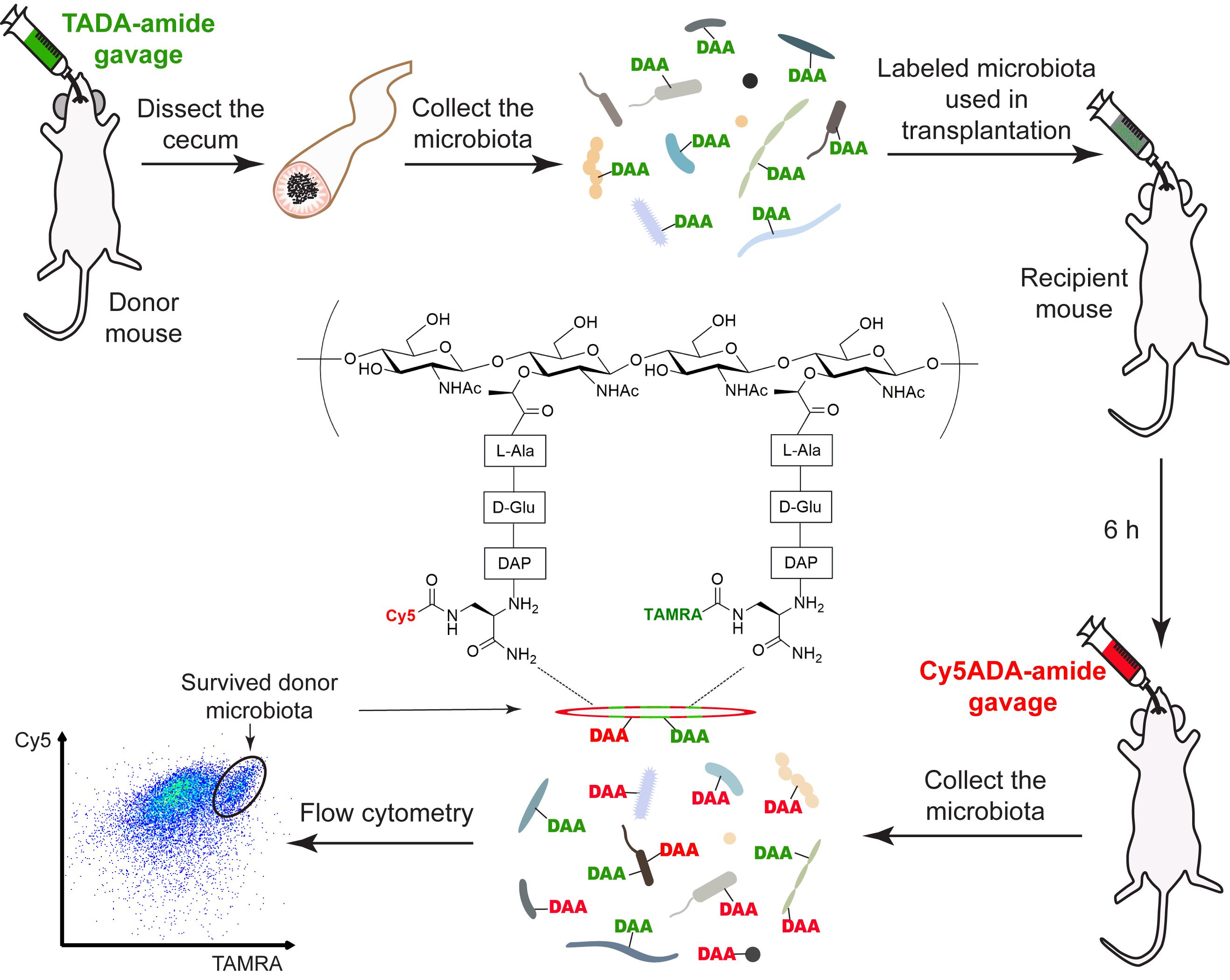Department of Chemical Biology
Yang's Lab,Department of Chemical Biology, Xiamen University
Professor Yang
 Know more>>
Professor
Department of Chemical Biology, Xiamen University
Know more>>
Professor
Department of Chemical Biology, Xiamen University
Contact Information
Yang's LaboratoryRoom 532, Lujiaxi Building, College of Chemistry and Chemical Engineering, Xiamen University, Xiamen 361005, China
Ph: +86 (0) 592-218 7601cyyang@xmu.edu.cn
Wang Wei's manuscript accepted by Nature Communications
2019-03-02 02:03:37

Currently, there are more than 200 fecal microbiota transplantation (FMT) clinical trials worldwide. However, our knowledge of this microbial therapy is still very limited. To facilitate the understanding of FMT, here we develop a strategy using sequential tagging with D-amino acid-based metabolic probes (STAMP) for assessing the viabilities of transplanted microbiotas. A fluorescent D-amino acid (FDAA) is first administered to the donor mice to metabolically label the gut microbiotas in vivo. The labeled microbiotas are transplanted to the recipient mice, which receive a second FDAA with a different color. The survived transplants should incorporate both FDAAs and can be readily distinguished by presenting two-color simultaneously. Isolation of the survivors and 16S rDNA sequencing identify several enriched genera, suggesting the importance of specific bacteria in FMT. In addition, using STAMP, we evaluate different antibiotics’ preconditioning effects of the recipients in improving the transplants’ survival. STAMP offers a versatile tool for deciphering the complex biology of FMT, and improving its treatment efficacy.
